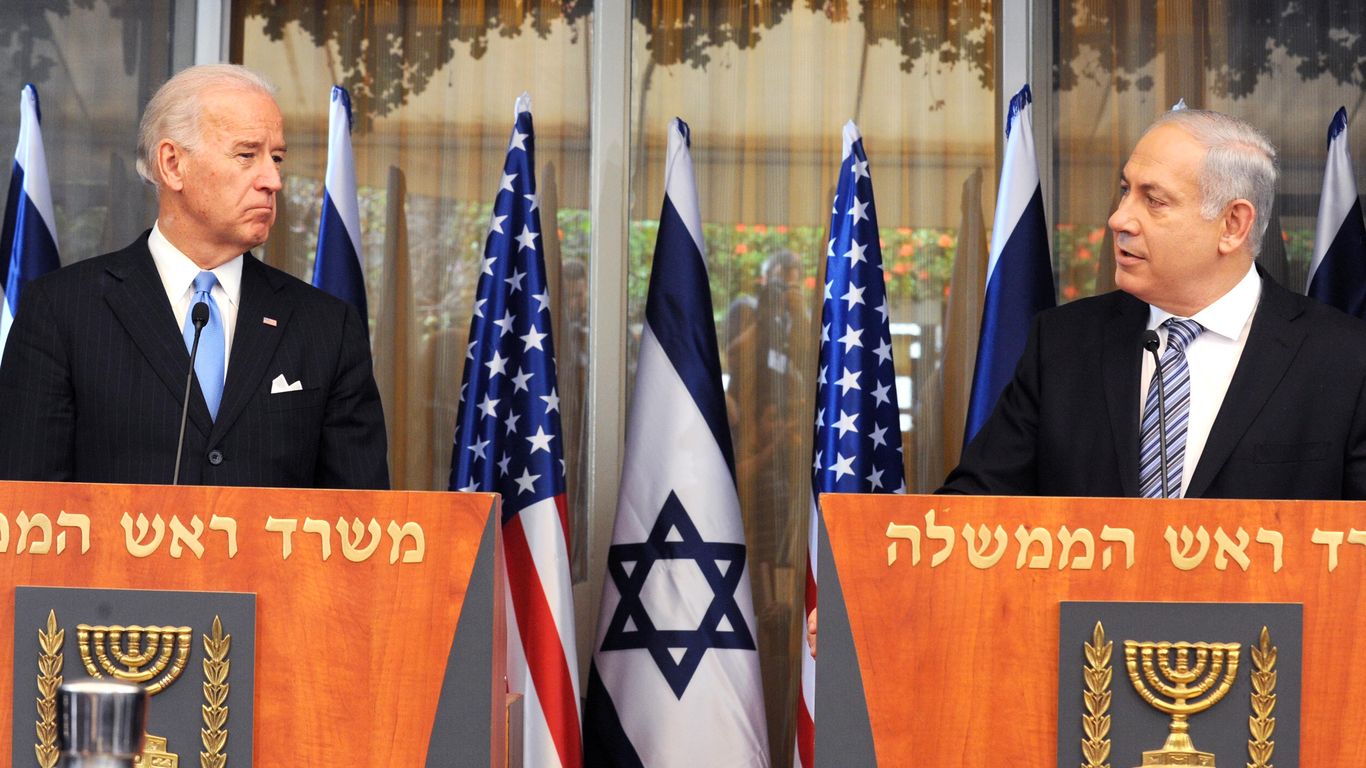Prime Minister Benjamin Netanyahu is demanding full control of Israel’s policy on Iran as Joe Biden prepares to take over the Oval Office, starting a fierce struggle at the highest levels of the Israeli government, Israeli officials told me.
Why it matters: Prime Minister Benjamin Netanyahu is preparing to take a very hard line on Biden’s plan to return to the 2015 nuclear deal, in contrast to the more moderate approach advocated by Defense Minister Benny Gantz, Foreign Minister Gabi Ashkenazi and the heads of Israel’s security services.
Driving the news: On December 29, under Netanyahu’s orders, Israeli national security adviser Meir Ben Shabbat sent a one-sentence letter to Gantz:
“According to the prime minister’s instructions, the Israeli government’s position on the nuclear deal with Iran will be finalized exclusively by the prime minister, based on the analysis made by the national security council in the prime minister’s office.”
Axios obtained the contents of the letter, who was also sent to Ashkenazi, Israeli ambassador to Washington Ron Dermer, Mossad director Yossi Cohen and IDF chief of staff, General Aviv Kochavi. No explanation was provided as to when the letter was sent or why it was sent, Israeli officials told me.
Behind the scenes: Gantz was shocked by Netanyahu’s letter and responded two days later with a letter of his own. Gantz wrote that the prime minister does indeed have the authority to finalize Israel’s position, but not to disregard almost the entire security establishment and intelligence community while also bypassing Israel’s security office.
“The issue of security and especially the Iranian archive is not a personal matter for just one person.”
– From the Gantz letter
Gantz added that Israeli policy on the deal with Iran should be the result of a comprehensive analysis involving all Israeli national security and foreign policy agencies, rather than just the national security council, which reports directly to Netanyahu.
- Gantz also wrote that any such policy must be approved after a serious discussion in the security office.
- Until today, the confrontation between Netanyahu and Gantz was known only to a small group of senior national security officials.
Between the lines: The moment of discussion – a few weeks before Biden takes office, and in the middle of Israel’s election campaign – makes it all the more sensitive and dangerous.
- While all major players agree on the strategic goal of preventing Biden from agreeing to an agreement that undermines Israeli security, they disagree on the tactic.
Hanging on the process is the fact that Netanyahu’s emphatic rejection of any deal in 2015 effectively marginalized Israel when Barack Obama sealed the previous deal. This prompted some senior officials to seek a more collaborative approach with the United States this time.
- A Netanyahu adviser told me that Netanyahu was motivated to send the letter by an Israeli press interview in which the head of Israel’s military intelligence research department said there was no evidence that President Trump’s withdrawal from the agreement served the interests of Israel.
- Netanyahu was also upset by rumors that during the visit of the president of the United States Joint Chiefs, General Mark Milley, Gantz and several generals of the Israel Defense Forces expressed a more moderate position on the deal with Iran.
Worthless: Netanyahu and Gantz declined to comment on this story.
